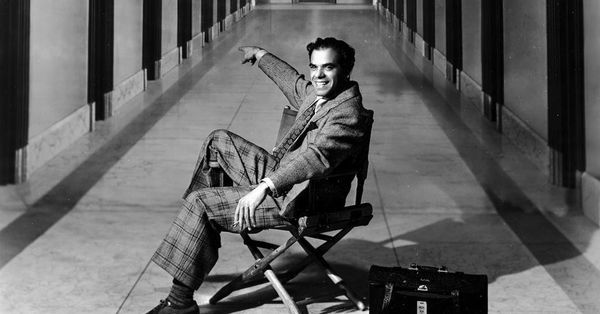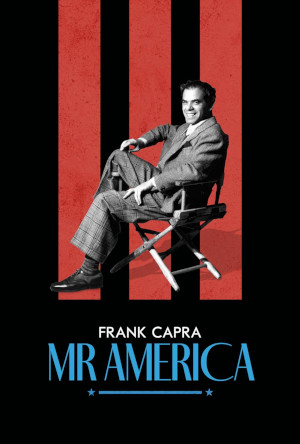Eye For Film >> Movies >> Frank Capra: Mr America (2023) Film Review
Frank Capra: Mr America
Reviewed by: Jennie Kermode

Few figures in the history of cinema have had as much impact on its development as Frank Capra – nor, for that matter, as much impact on US culture and the country’s perception of itself. Building his career at a time when life for most Americans was really hard and there was little hope around, he recognised Hollywood’s potential to deliver much-needed escapism, but also, in so doing, to provide an antidote to the bitterness and cynicism that was tearing the country apart – to encourage people to see the best in one another. This element of his filmmaking makes Matthew Wells’ documentary, which screened at the 2024 Glasgow Film Festival, feel very timely today. Arguably, we have never needed him more.
That’s one side of the story. On the other is a complicated man with some very unpleasant character traits – an openly racist, anstsemitic man whose private beliefs seemed to characterise everything his films opposed. How does one reconcile those two things? That’s what makes this film such a fascinating piece of work, exploring, as it does, a man who seems to have never been fully reconciled with himself.

Capra was the son of Sicilian immigrants and deeply ashamed of that heritage. Wells begins in his childhood, using archive footage to show us something of the environment in which he grew up, and reflecting on how the desire to escape drove him to become the success that he was. At a time when few working class boys went to school, he was a star pupil, relentlessly hardworking, and once he had developed the skills he needed he set off across country, in search of opportunity. It’s there that things get muddy. The legend is that Capra just turned up on set one day and worked wonders. That, it is quickly established, is ‘pure bullshit’. The truth is far more mundane, though it will do nothing to reduce your appreciation of the man’s talent.
Why was Capra so concerned with mythologising his own story? That’s never entirely clear, though it does provide a fascinating insight into his character – and a challenge for documentarians. Fortunately, Wells was not only able to draw on the excellent research of Capra’s biographer, but uncovered some surprisingly honest interview material in which the director reveals a lot more than was usual for him. He backs this up with interviews with film scholars. There are clips from the films, of course – not necessarily the ones you’d expect – as the film digs into both Capra’s history and his artistry.
If you have only a passing familiarity with Capra’s work, what springs to mind is likely to be It’s A Wonderful Life and It Happened One Night, and the chances are that you remember them first and foremost as warm, sentimental pieces. Wells reminds viewers of the darkness in such works, and the current of violence lurking just below the surface, as well as the preacrity of their characters’ lives. Capra may have invented the romcom, but there was a lot going on in his works, and it was that rootedness in reality that gave them so much power when they were first released. Additionally, he looks back before this phase of Capra’s career began, briefly addressing the director’s forgotten action films and war films, and the likes of The Bitter Tea Of General Yen.
There’s an account of Capra’s work with Colombia and later with Paramount, the significance of the studio system, his unheard-of Oscar triumph and his difficulty in following it up. Wells examines his work as a World War Two propagandist (awhole extra film might be made about the long term influence of this) and how the war affected him, poisoning his deep love of humanity and leaving him struggling to find the hope on which his work depended. He also looks at Capra’s eventual fall from grace as a nation panicking about Communism began to turn on itself, doubting even this committed patriot.
Throughout, there are little observations which add richness and depth – appropriately for a portrait of a man who dwelt in detail, who famously cast his films “right down to the smallest parts.” When all is said and done you might not like Capra, but you will have a deeper appreciation for his work. Wells finds within his story many formative elements of 20th Century US history, with Capra’s tragedy and contradictions speaking to the country’s own. Capra helped to invent the Hollywood ending. He was never going to have one of his own, but nonetheless, Wells’ portrait of him is compelling.
Reviewed on: 02 Mar 2024















